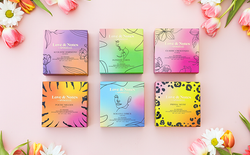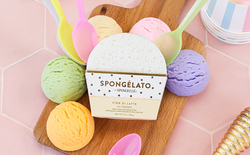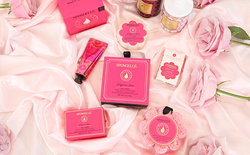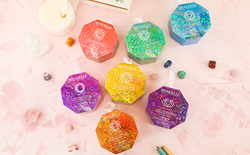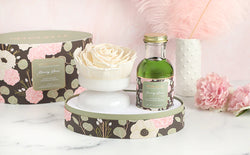Eucalyptus is a popular essential oil and plant extract used in many products such as candles, bath and body products, and medicines. It contains a host of health and skin benefits and smells simply divine. What does eucalyptus smell like? Here is everything you need to know.
What Is Eucalyptus?
Eucalyptus, scientifically known as Eucalyptus globulous, is a tree native to Australia and nearby southern islands. There are many species of eucalyptus and they grow in varying sizes, from small shrubs to giant trees. It is the primary source of food for koala bears, and its oil is used in Aboriginal medicine for healing a variety of skin conditions.
Eucalyptus is toxic to humans when ingested in certain forms. Always talk to your doctor before using eucalyptus as a medicinal remedy.
Where Does Eucalyptus Oil Come From?
Eucalyptol is the main component of eucalyptus oil, making up 90% of the oil. This oil comes from the plant’s leaves (mainly the Tasmanian Blue Gum and Black Peppermint Tree species). Eucalyptus oil is a terpene with a minty scent, and it contains other terpenes that hold woodsy, citrusy notes.
The oil is extracted from the leaves by a pressing and crushing process, and then they are steam distilled to release the oil. These leaves also contain tannins and flavonoids (antioxidants) along with their oils.
ユーカリの香りはどんな香り?
Eucalyptus leaves contain many oil glands that release the plant’s fresh mint, pine, wood, camphor, lemon, or honey notes, depending on the plant species. These subtle, natural scents embody many eucalyptus retail products such as scented candles, body lotion, body oil, body wash, exfoliating sponges, and other scented products.
Eucalyptus’ Use as Aromatherapy
Scent is associated with memory and emotions and has the potential to decrease negative emotions and increase positive ones. Odors may also stop cravings, reduce stress, and lessen inflammation. Eucalyptus’ fresh, earthy, and minty scent is among one of the most popular essential oils for many reasons, and there are a variety of uses for its oil.
Shower Bomb
Diffuse eucalyptus oil in the shower’s steam and inhale its aroma. The pleasant scent clears the sinuses and invigorates your mood, and it may also offer a relaxing effect on the mind.
Exfoliating Shower Soap Sponge
Exfoliating soap sponges from Spongellé infuse your favorite aromatherapy scent in the shower while providing an exfoliating cleanse. The Eucalyptus Rain soap sponge is part of our Private Reserve Collection. It delivers the signature scents of yuzu, edelweiss, and vetiver to calm yet tantalize your senses.
Room Diffuser
Diffusing eucalyptus essential oil in the home is a pleasant way to enjoy its aromatic benefits. Place a few drops of pure essential oil into an oil room diffuser and enjoy the relaxing and refreshing scent.
Which Essential Oil Scents Pair Well With Eucalyptus?
Eucalyptus is a scent that stands out on its own and works well individually or paired with various other oils. It pairs well with rosemary, lavender, and earthy aromas, such as lemon, cedarwood, and peppermint. Each of these essential oil scents is beautifully fresh.
What Are the Medicinal Uses of Eucalyptus?
- Cough Suppression
- Antiseptic
- Provides energy
- Loosens mucus
- Relaxation
- Reduce inflammation
- Insect repellant
- Removes lice
- Deodorizes
- Soothes acne
Eucalyptus oil is also a base ingredient in many medicines, aromatherapy oil products, and home goods. People often use eucalyptus oil in their meditation practices to promote a restful night’s sleep, as a wound dressing, or to soothe a sore throat. Eucalyptus also has many other benefits worth noting.
1. Cough Suppression
Coughs are sometimes challenging to get rid of and painful to experience. Often, a cough accompanies a sore throat, a symptom that is even more painful. Balms and chest rubs, cough syrups, cough drops, and cold medicines often contain eucalyptus oil as one of its leading ingredients.
The fresh and minty-cool scent helps clear the nasal passageways and chest congestion. Eucalyptus may also be diffused through a humidifier to clear the chest and sinuses.
2. Antiseptic
Eucalyptus contains cineole, an antiseptic that combats the bacteria associated with bad breath, plaque, and gingivitis. Some antiseptic mouthwashes contain eucalyptus oil and other essential oils to help improve dental hygiene.
In England in the 19th century, eucalyptus oil was used in hospitals to kill bacteria, viruses, and fungi and clean catheters. It also helps clean minor wounds, insect bites, minor cuts, and scrapes and kills other harmful bacteria that cause infections and illness.
3. Provides Energy
Studies indicate that eucalyptus oil may support increased energy levels. Incorporating eucalyptus oil in your shower may increase your brain wave activity and energy in the morning. Prefer your showers at night? Eucalyptus also helps support mental fatigue by clearing your mind and preparing you for a restful night’s sleep.
4. Loosens Mucus
Mucus accumulates in your nasal passages, chest, and throat with seasonal allergies and colds. It blocks these passageways and usually accompanies a cough and runny nose. Inhaling steam with eucalyptus essence or using a balm containing eucalyptus oil loosens this mucous, clearing and relieving these symptoms.
5. Relaxation
Unfortunately, stress and anxiety are a common part of many people's daily lives. Anxiety is the most common mental illness, affecting 18.1% of the United States’ adult population every year. According to research, Eucalyptus oil creates wonderful and relaxing aromatherapy for soothing the mind and senses and may reduce anxiety.
6. Reduce Inflammation
Studies indicate that eucalyptus oil reduces pain and inflammation, suggesting it may soothe inflammation and pain resulting from arthritis and other joint conditions. Combining eucalyptus oil in cream, balm, and salves reduces pain and inflammation in affected areas.
An inflammatory response study showed that patients who inhaled eucalyptus oil post total knee replacement surgery experienced lessened inflammatory response and pain.
7. Insect Repellant
Insect repellants contain many harmful ingredients that people try to avoid. Eucalyptus and lemon are just two of many alternative natural ingredients that effectively deter insects without using harmful toxic chemicals. Studies indicate that insect repellents containing essential oils are just as effective, if not more effective, than those containing toxic chemicals such as DEET.
8. Removes Lice
Over-the-counter lice treatments involve a chemical solution and a fine-toothed comb that removes the lice eggs (nits) from the hair and kills the living lice bugs. Many parents today opt for a more natural approach to treating lice. Eucalyptus and tea tree oils are two ingredients that are a natural alternative to treating lice and relieving its symptoms.
9. Deodorizes
Eucalyptus’ strong, fresh scent can overpower foul odors, replacing them with a clean smell. Its aroma brings along with it many health benefits as well. Diffusing eucalyptus oil in your home provides a fresh, clean scent.
10. Soothes Acne
Eucalyptus oil’s anti-inflammatory and antiseptic properties may help soothe inflamed acne when used topically in creams.
Summing It Up
Eucalyptus has a minty, woodsy, fresh scent, depending on the tree species from which it originates. It makes fantastic aromatherapy for your home or shower and contains many proven health and skin benefits. Its use in the shower clears congestion, and mucous revitalizes the mind and body and provides relaxing mental clarity.
Spongellé’s exfoliating sponges, bath and body, foot, and hand care products contain exquisitely scented ingredients that nourish, moisturize, and cleanse the skin. Envelop yourself in the richly scented bubbles of the Spongelle Eucalyptus Rain exfoliating sponge. Take the Spongellé fragrance quiz to find the perfect scent for yourself or to gift a friend.
ソース
terpene | chemical compound | Britannica
Eucalyptus Information | Mount Sinai - New York
Effects of odor on emotion, with implications - PMC | NCBI
Plant-based insect repellents: a review of their efficacy, development, and testing | NCBI
Skin-Applied Repellent Ingredients | US EPA
New Perspectives on Antiacne Plant Drugs: Contribution to Modern Therapeutics - PMC | NCBI
The Role of Odor-Evoked Memory in Psychological and Physiological Health - PMC | NCBI
